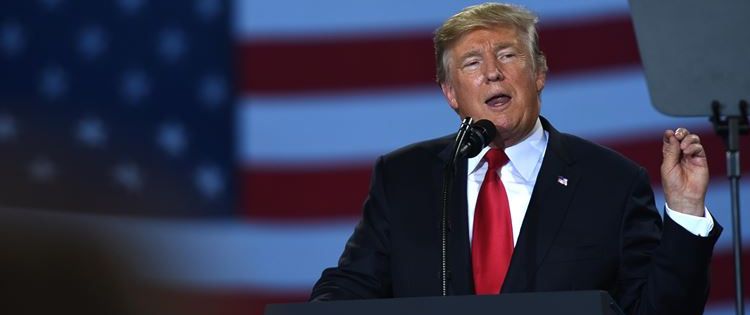Alice Marie Johnson was the leader of a cocaine ring in the early 1990s. She was sentenced to life imprisonment in 1996. But last week, President Donald Trump commuted the sentence of this 63-year old grandmother.
Trump’s decision was made soon after he met with the famous TV personality and entrepreneur, Kim Kardashian West. She visited the White House last week to bring Johnson’s case to the attention of the president.

Kardashian discovered Johnson’s case soon after seeing a video about her on Mic, a News & Media Website based in New York. The celebrity then worked with several lawyers to press for the release of the grandmother.
Kim succeeded and although the computation won’t delete the record of Johnson’s crime, it will allow her to be released from jail immediately.
On an interview with the newly freed Johnson, she told Today that her release was a miracle.
Though this seems to be a great move by the current administration, Bloomberg reported Trump’s Commutation of Alice Marie Johnson may be a gesture towards the persons who asked for it.
According to Bloomberg, the president thanked Kardashian and her husband, Kanye West, for helping him increase his popularity among the black community.
Trump’s approval rating had increased by a bit among African American voters in a poll conducted in April this year.
Malleable Stand
Johnson’s case stands out because it doesn’t align with the current administration’s actions and view on imprisonment and drug use.
On one instance, President Trump argued that the country, which incarcerates suspected individuals at a higher rate than many other nations worldwide, needs to have stricter penalties for lawbreakers.
In his previous public statements, the U.S. president berated drug dealers and even called for them to face the death sentence if they are proven guilty.

Although President Trump is willing to release Johnson, it underscores how many nonviolent drug offenders are still in federal jail for their entire life.
According to federal data analyzed by the Sentencing Project, a criminal-justice reform group, as of 2016, almost 2000 federal inmates are serving life sentences because of offenses related to drugs, most of which are by definition, nonviolent.
A recent federal data shows that roughly 48 percent of Americans in the federal prison are jailed for drug crimes. It is much higher compared to the 10 to 15 percent drug-related arrest at the state level.
Sentencing Project also noted that 103 people are serving what they call virtual life sentences. These are the penalties that are long enough to fundamentally guarantee that the inmate will die in prison before they finish their term in jail.
Sentence by the Color
Another thing Sentencing Project discovered is that the system of the federal prison disproportionately affects mostly people of color.
While black communities in the U.S. use and sell drugs at rates similar to whites, they are much more likely to be arrested and incarcerated for it.
Another unfortunate case for the colored communities is that they often get more severe punishment than their white counterparts.
The 2017 report of the US Sentencing Commission found that from 2011 to 2016, black males receive federal sentences for illegal drug trafficking nearly 18 percent longer than white men in similar cases and situations.
In addition to that, American Civil Liberties Union’s report in 2013 that studied 3,278 prisoners who are serving life sentences without parole for nonviolent drug offense found that there is a racial disparity in who receives the sentences.

“Blacks are sentenced to life without parole for nonviolent offenses at rates that suggest unequal treatment and that cannot be explained by white and black defendants’ differential involvement in crime alone,” the report notes.
President Trump also seems to be flexible in his judgment and has pushed severe sentences for drug offenders. In 2017, his attorney general, Jeff Sessions, directed federal prosecutors to pursue the highest level of penalties for the cases which involve low-level drug offenders.
Sessions have incorrectly argued that the crime is increasing due to the efforts to reduce prison sentences.
Just recently, Trump assigned his son-in-law, Jared Kushner in developing a proposal for the prison reform program. Kushner’s main proposition disregards and does not mention anything about reducing lengthy incarceration years in favor of assisting prisoners to rehabilitate themselves while they are in jail.
President Donald Trump’s power to commute and pardon is limited to the federal level. It is in the federal prison system is where President Trump has a particularly strong influence.
While the President has helped Johnson, his administration’s actions to pursue policies that are unlikely to help others like her and may, in fact, push more people into a similar position.
What are your thoughts on Trump’s commutation of Alice Marie Johnson? Share them with us in the comments below.
- How Commercial Cannabis Growers Can Benefit from Using a Software - May 17, 2019
- Understanding CBD Interactions and Why CBD and Your Brain Can Be Best Friends - January 4, 2019
- The Difference Between Using THC and CBD - December 19, 2018


